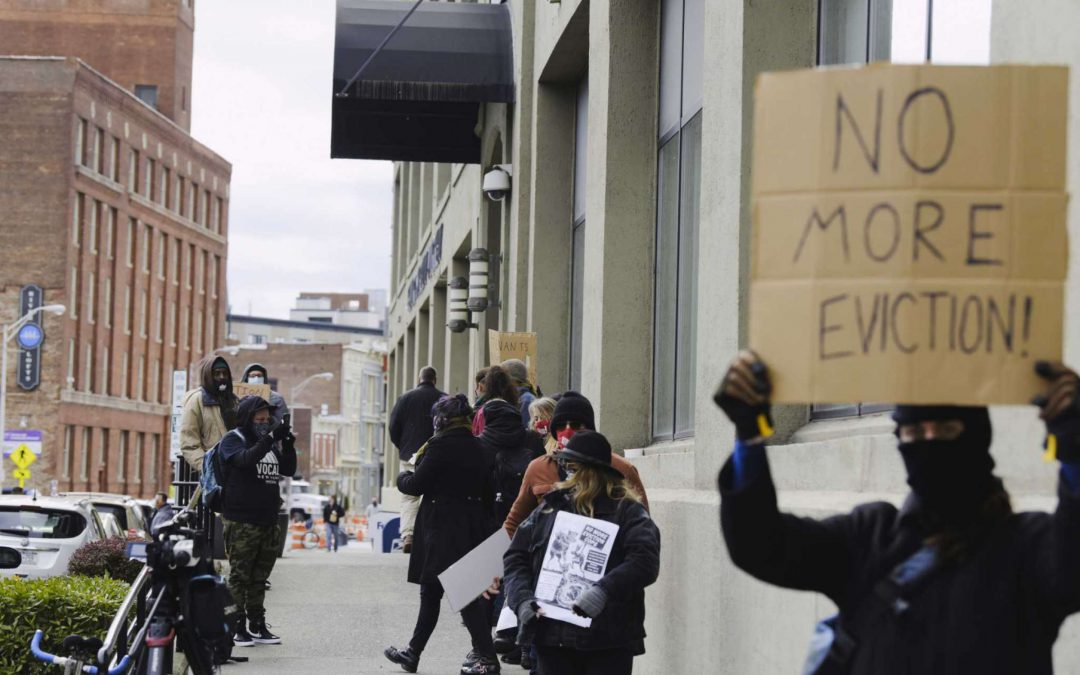WASHINGTON, D.C. — Some housing officials in the Capital Region are telling homeowners who are relieved by the new federal COVID-19 eviction moratorium extension to begin preparing financially for the eventual end of the federal program.
The U.S. Department of Housing and Urban Development announced recently that there will be extensions on the federal Housing Administration’s foreclosure and eviction moratoriums as well as an expansion of the COVID-19 forbearance to June 30. The extensions begin immediately.
The expansion, according to HUD, will “provide relief to the nation’s homeowners with FHA-insured single-family mortgages who continue to suffer financially because of the COVID-19 pandemic.”
In a statement, HUD announced several forms of relief for homeowners struggling to pay their mortgages. First, they announced an extension to June 30 on the initial start date for homeowners to request the start of a COVID-19 forbearance, which HUD defines as “an option (that) mortgage servicers use to provide homeowners with a pause to their monthly payments for a limited period of time during a COVID-19 induced hardship.”
In addition, HUD announced a 180-day extension of the deadline of legal actions by mortgage companies “from the date of expiration of the foreclosure and eviction moratorium.”
“The steps we are taking today will provide both immediate relief to those in desperate need of assistance and help more homeowners keep their homes and resume their payments when the pandemic subsides,” acting HUD Secretary Matthew Ammon said.
Area housing experts praised the HUD actions, but said homeowners have to prepare for the end of the extensions.
Susan Cotner, executive director of the AHP Homeownership Center in Albany, part of the Affordable Housing Partnership, said the news is great for unemployed individuals but she reiterated that the forbearances do not mean mortgage payments are forgiven or eliminated.
“By simply just moving payments to the end of the loan, that does not mean all your problems are solved,” Cotner said.
Caitlin Burns, director of wealth building strategies and advocacy at the Troy Rehabilitation and Improvement Program, which helps people with low to moderate incomes buy and maintain homes, also expressed concern that the new extension is “just a band-aid” and warned homeowners against having a false sense of security.
“In theory, you would hope it would give people more time to regroup their finances, regroup their lives,” Burns said. “But … there’s that false sense of security and there’s not enough knowledge out there to understand what comes next.”
She added that TRIP is helping homeowners understand what forbearance and other financial terms mean by holding informational sessions to review financial literacy.
Like Burns, Cotner urged homeowners affected by the pandemic not to wait until the end of the grace period to think about their means of repayment.
“It’s better to take the time now to know what’s going to happen,” she said.
Homeowner groups also were concerned about continued financial support from New York. Kirsten E. Keefe, a senior attorney with Empire Justice Center, said that the Homeowner Protection Program provides $20 million per year for 88 housing organizations across the state, including TRIP and AHC, that help homeowners.
“If we do not get continued funding, the vast majority of these services will end,” Keefe said.


